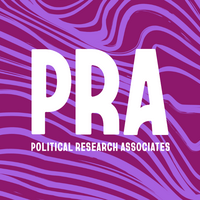PRA’s senior religion and sexuality researcher Rev. Dr. Kapya Kaoma published an Op-Ed in the LA Times this morning, detailing U.S. conservative evangelical involvement in the spread of anti-gay legislation across the world. Check out the excerpt below and read the full Op-Ed here!
Uganda has deservedly received widespread attention, but it’s not the only country with a culture war that carries the fingerprints of U.S. campaigners. Nigeria has passed a bill almost identical to Uganda’s, and Cameroon and Zambia are enthusiastically imprisoning An umbrella acronym standing for lesbian, gay, bisexual, transgender, and queer or questioning. Learn more people.
And let’s not forget Russia. In 2007, Lively traveled throughout Russia to, as he put it, bring a warning about the “homosexual political movement.” He urged Russians, among other things, “to criminalize the public advocacy of homosexuality.” Last year, President Vladimir Putin signed a bill into law that criminalizes distribution of “gay propaganda” to minors, including any material that “equates the social value of traditional and nontraditional sexual relations.”
Later this year, the World Congress of Families — an Illinois-based conservative umbrella organization — will convene in Russia. As the group’s leader, Larry Jenkins, put it: “We’re convinced that Russia does and should play a very significant role in defense of the family and moral values worldwide. Russia has become a leader of promoting these values in the international arena.”
U.S. culture warriors have strategically focused on countries already suspicious of America, often ones with authoritarian leaders eager to turn public attention away from issues of corruption or economic inequality.
By recasting LGBTQ people in their countries as creations of the West, these leaders both feed on and fuel existing prejudices. Strongly worded statements from President Obama, Secretary of State John F. Kerry and U.N. General Secretary Ban Ki-moon merely reinforce the argument that the West is imposing an international “gay agenda” on unwilling nations. The irony, of course, is that these “anti-Western” policies were created and marketed by Americans.
